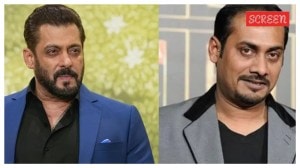For this tribe of players hockey is a blood sport
Pass by New Delhi’s Shivaji Stadium any weekend over the next month and you’ll see a group of people playing hockey. Nothing unusu...

Pass by New Delhi’s Shivaji Stadium any weekend over the next month and you’ll see a group of people playing hockey. Nothing unusual — this is a hockey stadium — but these aren’t hockey players. These men and women, drawn from the tribal areas of Jharkhand and Orissa, are domestic help, security guards, shop assistants, drivers — and playing hockey in whatever time off they get because it’s in their blood.
Hockey is more than a sport in these tribal areas, it’s a way of life. Everyone plays hockey back home, and some rise out of the economic hardship to make it big — at the Asia Cup, which the Indian women’s team won recently, there were eight players from this tribal belt, which also provides men’s team captain Dilip Tirkey along with a few others. Playing on astro-turf for them was a dream, and the dream has now come true. The turf, which is rented out at an exorbitant Rs 2000-Rs 2500 daily, has always been out of bounds for them. But courtesy YMCA, 32 clubs made up of these players are now competing for the YMCA Cup, launched last month in the presence of eight India women’s team players from these regions.
The tournament is held on weekends because that’s the only time the players can get away from work. Players like David Toppo from Gumla, Jharkhand. A house guard in the Lajpat Nagar area, he says that while earlier they could avoid buying shoes because playing on grass doesn’t require them, now they are playing with borrowed shoes. The 25-year-old adds, ‘‘An ordinary hockey stick also costs Rs 450. So we place bulk orders to Jalandhar — it is the main manufacturing centre — to get a hefty discount.’’
Talented defender Rajesh Toppo, who hails from Nijdumri in Jharkhand, says that his entire village used to play hockey with sticks made from bamboo and ‘‘there was no fixed duration for the match or the number of players in the team. But everyone enjoyed playing. We want to do the same thing in Delhi.’’
While he can now play in an organised tournament, in Delhi, with proper sticks, his club remains handicapped because of the absence of proper goalkeeping kits, costing around Rs 20,000. ‘‘That is the main problem. It is too expensive for most of the teams. We then approached the stadium authorities to give us the used one, which in any case are thrown away by them,’’ said Rajesh, who works in a Hauz Khas shop.
After the tournament, the YMCA is also planning to start an academy after indentifying the best talents. Mark Clive, in charge of the YMCA’s sports cell, says, ‘‘There is an abundance of talent among the tribals and we hope to provide them the facilities so they can fulfill their capabilities.’’
Dr Cecil Khakha at the ESI Hospital in West Delhi adds that all these players need is some basic encouragement. Khaka, also from Jharkhand, says, ‘‘Tribals in Jharkhand are as passionate about hockey as people in Kolkata are about football. The academy can bring a great change in the lives of these youngsters.’’
At least a few of these problems will be sorted out for them, albeit temporarily, during the tournament, where proper kits including a pair of shoes and refreshment for all the players have been promised. And who knows, maybe the next Dilip Tirkey can emerge from here. And even if nothing else develops, a bright spot in the lives of these boys and girls are assured.
Photos



- 01
- 02
- 03
- 04
- 05



























